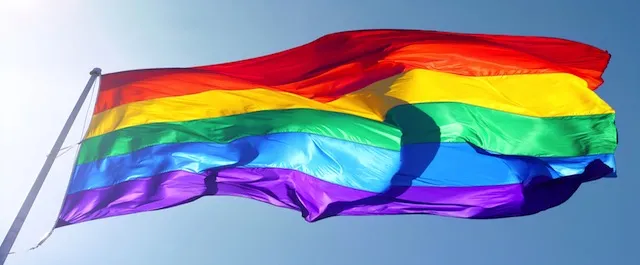
In honor of Lesbian, Gay, Bisexual and Transgender Pride Month, we wanted to focus this week’s blog post on LGBT issues in a job search and at work. Pride month’s history focuses on parades and festivals that celebrate openness and equal rights for all. In a work context, this includes people who identify as LGBT and allies who want to create and maintain a supportive work environment. Two weeks ago, we wrote a post “Illegal Interview Questions – What They Are and How to Handle Them.” This post triggered a discussion and we realized that beyond what’s covered in anti-discrimination laws, there are also disclosures that can make you feel uncomfortable in a professional setting.
For some, coming out can be a hard choice. It is not a one-shot event; rather it occurs over and over again throughout one’s life and career. This is also a very personal decision; how much or how little you want to be out in your workplace or in a job search is often complex and nuanced. Varied questions can arise such as: How important is it to me to be out? How will I come out at work? How will my co-workers react? How gay-friendly is my company and/or field of work? Will I be screened out based on my affiliations if I put LGBT activities on my resume?
Coming Out In a Job Search
When deciding whether or not be out on a resume, job application or in an interview, it is extremely important to do what feels the most comfortable to you. Each individual has a unique experience and viewpoint, so this process varies widely and it may or may not be difficult for you. If you find it difficult, it is a good idea to speak to people in your network or a career counselor. What feels right to you might not be the same as what is right for another. Some individuals choose to use their resume as a way to screen out non-supportive employers and will explicitly list LGBT-related organizations. Others may prefer to disclose their sexual orientation once hired or not at all.
Differences can continue even into the interview. One may decide to ask the following questions, like: Is there a lesbian, gay, bisexual and transgender employee resource group at your workplace? or Will my partner be covered by my health insurance? Another may decide to be more guarded and rely on researching the company online and/or through their own professional contacts.
Coming Out In the Workplace
While being out at work (and in life) can be very satisfying, some people may also have concerns about it. This can be especially relevant depending on your geographic location or the culture of your work environment. No one wants to jeopardize their job security or opportunities for advancement. With that in mind, here are some questions to consider before making this decision (as noted by the Human Rights Campaign website):
- Does your employer have a written non-discrimination policy? Does it specifically cover sexual orientation and/or gender identity/expression? Does insurance cover domestic partner benefits? Does health coverage cover transitioning costs?
- What’s the overall climate in your workplace? Do people tend to make derogatory comments or jokes? Are any of your co-workers openly LGBT?
- What are your work relationships like? Do people discuss their personal lives? Are they asking questions about yours? Is the atmosphere friendly or guarded?
- Does your state or locality have a non-discrimination law including sexual orientation and gender identity/expression?
- Is your company ranked on the Human Rights Campaign Corporate Equality Index? If so, what rating has it earned?
Coming out during your career is an ongoing process and there is not one right way to do it. Even if you come out to one person at work, you can’t assume that information is being passed on. It is important to assess your readiness and the level of disclosure that feels comfortable to you. It can be helpful to talk to folks who have been through this process to seek advice and support. Out for Work and Out and Equal Workplace Advocates are two good introductory resources. Also, at the NIH, LGBT Fellows and Friends (LGBT-FF) is an excellent group with which to connect. You can join their listserv here.




